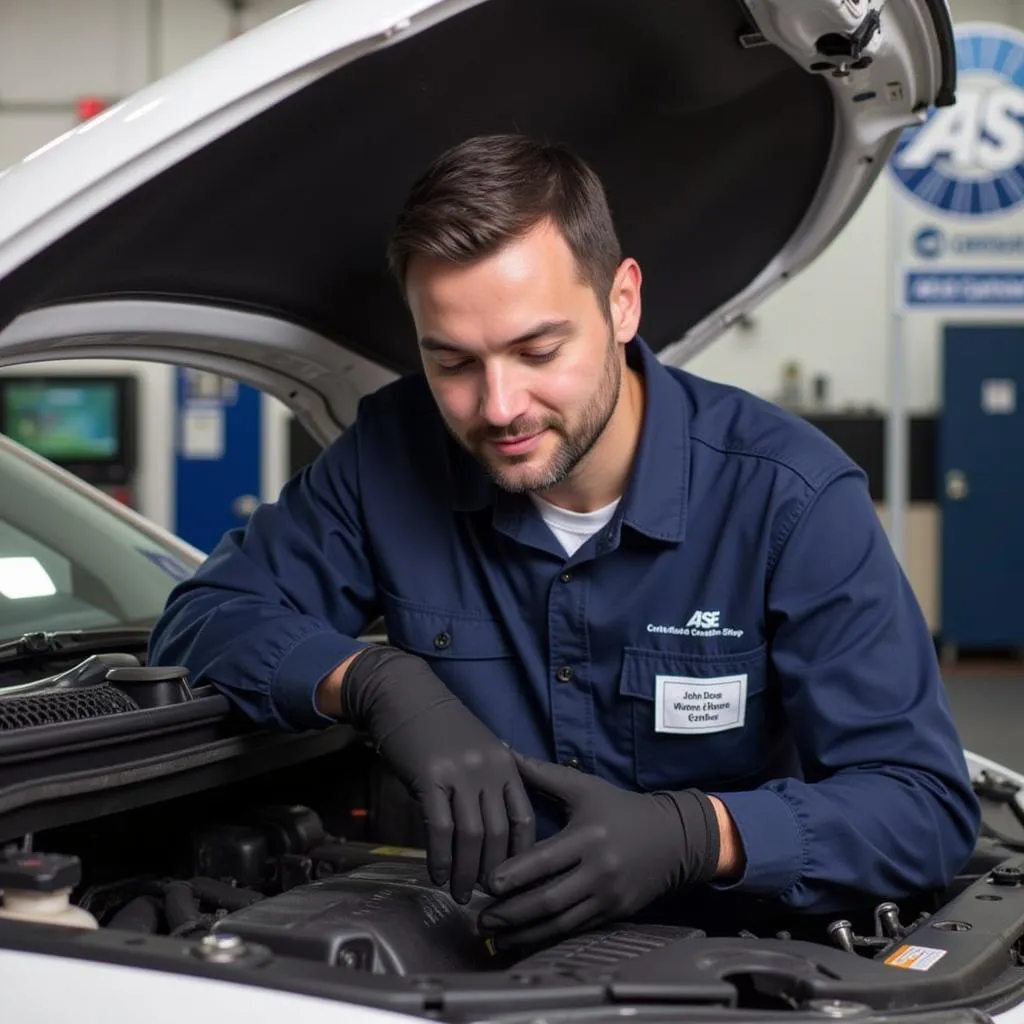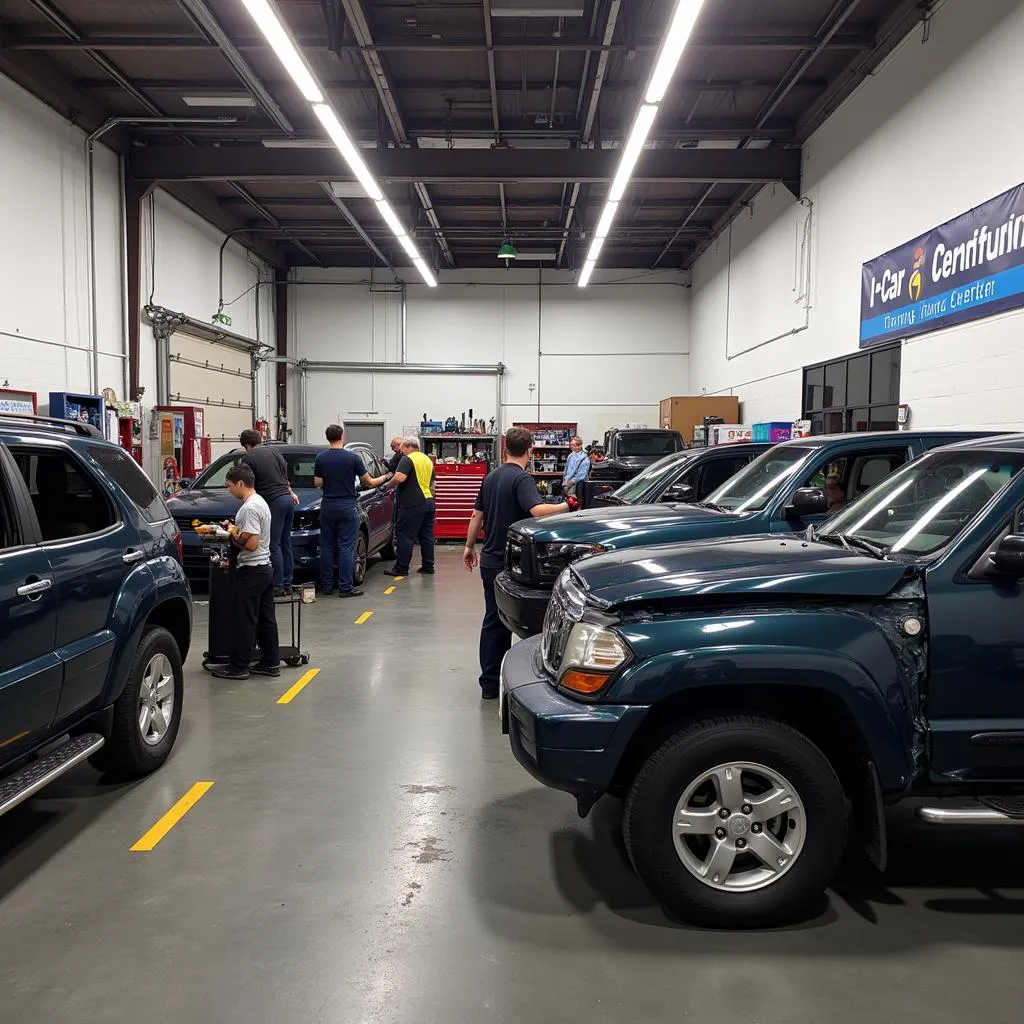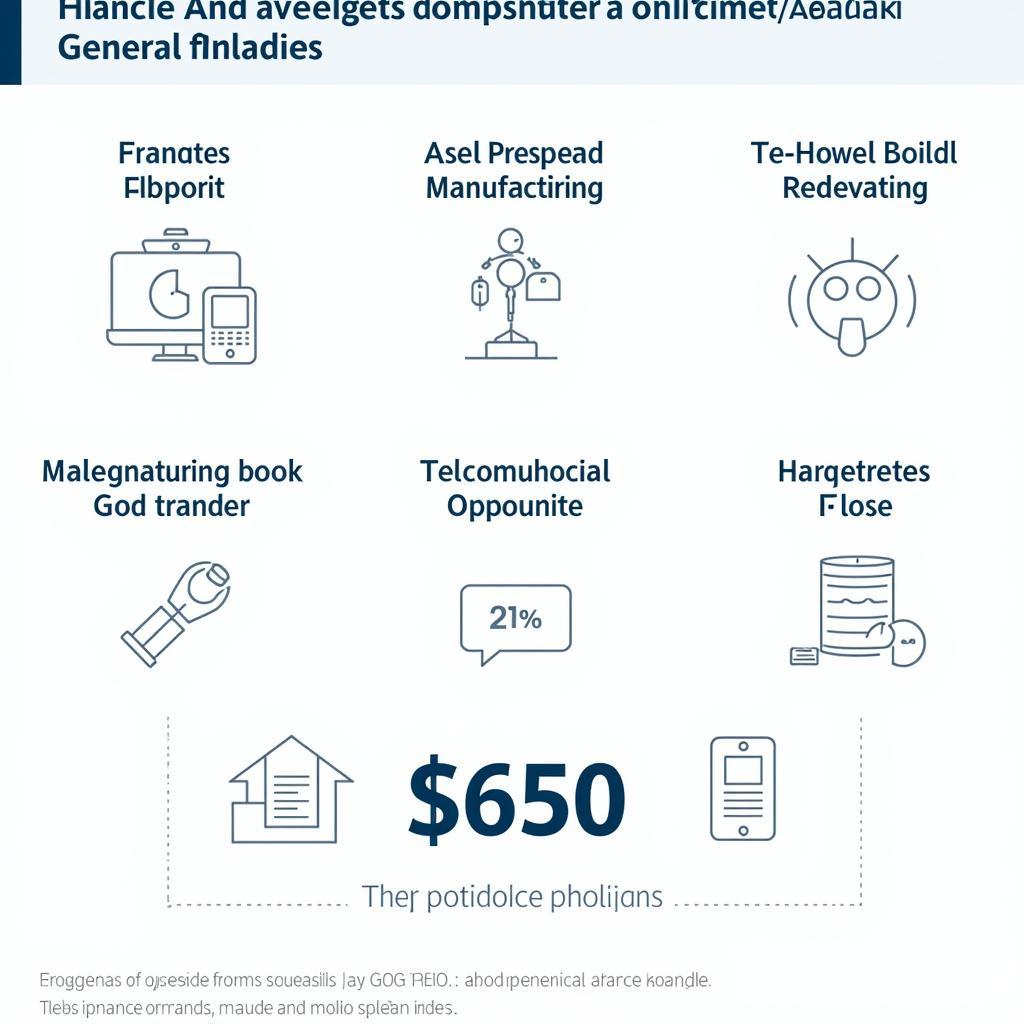Are you looking to get your car repaired in a Spanish-speaking country but feel overwhelmed by the technical jargon? Don’t worry! Understanding certifications like ASE and I-Car can help you confidently choose a qualified technician. This article will guide you through the ins and outs of these certifications, explaining what they mean in Spanish and why they matter.
What does ASE certification mean in Spanish?
ASE stands for the National Institute for Automotive Service Excellence in the United States. In Spanish, it translates to “Instituto Nacional para la Excelencia en el Servicio Automotriz.” However, it is often referred to simply as “Certificación ASE”. An ASE certification signifies that a technician has demonstrated competency in specific areas of auto repair by passing rigorous exams.
 ASE Certified Technician
ASE Certified Technician
What are the benefits of choosing an ASE certified mechanic in a Spanish-speaking country?
Choosing an ASE-certified mechanic, even in a Spanish-speaking country, offers several benefits:
- Quality Assurance: ASE certification demonstrates a mechanic’s commitment to professional development and staying current with industry standards.
- Peace of Mind: Knowing your mechanic possesses internationally recognized credentials provides peace of mind, assuring you of their competence.
- Potential Cost Savings: While ASE certification doesn’t guarantee lower prices, skilled technicians may complete repairs more efficiently, potentially saving you money in the long run.
What is I-Car certification in Spanish?
I-Car, the Inter-Industry Conference on Auto Collision Repair, focuses on collision repair education. While it doesn’t translate directly, in Spanish, it can be referred to as “Certificación I-Car” or “Entrenamiento I-Car.” I-Car offers various training programs and certifications for technicians involved in collision repair.
Why is I-Car certification essential for collision repair?
 Car Collision Repair Training
Car Collision Repair Training
I-Car certification is crucial for collision repair technicians because:
- Advanced Technology: Modern vehicles incorporate complex materials and technologies. I-Car training equips technicians with the knowledge and skills to repair these vehicles safely and effectively.
- Safety First: Proper collision repair is crucial for the vehicle’s structural integrity and occupant safety. I-Car certified technicians understand these critical aspects.
- Insurance Requirements: Many insurance companies prefer or require repairs to be carried out by I-Car certified technicians to ensure quality and safety standards are met.
How to find ASE and I-Car certified technicians in a Spanish-speaking country?
- Online Directories: Websites like ASE’s official website and I-Car’s website allow you to search for certified professionals by location, even in Spanish-speaking countries.
- Ask for Referrals: Ask friends, family, or locals for recommendations. Word-of-mouth can be a reliable way to find trustworthy mechanics.
- Check with Dealerships: Authorized dealerships often employ certified technicians for both mechanical and collision repairs.
- Look for Certifications: When visiting a repair shop, look for ASE and I-Car certificates displayed prominently.
 Mechanic Explaining Car Repair to a Customer
Mechanic Explaining Car Repair to a Customer
Conclusion
Whether you need routine maintenance or complex collision repair in a Spanish-speaking country, seeking out ASE and I-Car certified technicians ensures you are entrusting your vehicle to skilled professionals. These certifications, recognized internationally, provide confidence in the quality and safety of the repairs, offering you greater peace of mind.
FAQs
1. Are ASE and I-Car certifications recognized outside the United States?
Yes, both ASE and I-Car certifications are globally recognized and respected in the automotive industry.
2. Do all mechanics in Spanish-speaking countries have these certifications?
While becoming increasingly common, not all mechanics in Spanish-speaking countries hold these certifications. It’s essential to actively seek out those who do.
3. Is it more expensive to go to a certified mechanic?
While costs vary, certified technicians often provide accurate estimates and efficient service, potentially saving you money in the long run.
4. Can I trust a mechanic who only speaks Spanish?
Absolutely! Language should not be a barrier to quality service. Many skilled mechanics in Spanish-speaking countries may primarily communicate in Spanish.
5. How often do mechanics need to renew their certifications?
ASE certifications typically require renewal every five years, while I-Car training often involves updates to keep pace with evolving technologies.
Need Assistance?
For any further questions or support regarding ASE and I-Car certification in Spanish, feel free to contact us.
Phone Number: 0369020373
Email: [email protected]
Address: Thon Ngoc Lien, Hiep Hoa, Bac Giang, Vietnam.
Our dedicated customer support team is available 24/7 to assist you.
